Testing Methodology
The OS we use is Windows 8 Pro 64bit with all patches and updates applied. We also use the latest drivers available for the motherboard and any devices attached to the computer. We do not disable background tasks or tweak the OS or system in any way. We turn off drive indexing and daily defragging. We also turn off Prefetch and Superfetch. This is not an attempt to produce bigger benchmark numbers. Drive indexing and defragging can interfere with testing and produce confusing numbers. If a test were to be run while a drive was being indexed or defragged, and then the same test was later run when these processes were off, the two results would be contradictory and erroneous. As we cannot control when defragging and indexing occur precisely enough to guarantee that they won’t interfere with testing, we opt to disable the features entirely.
Prefetch tries to predict what users will load the next time they boot the machine by caching the relevant files and storing them for later use. We want to learn how the program runs without any of the files being cached, and we disable it so that each test run we do not have to clear pre-fetch to get accurate numbers. Lastly we disable Superfetch. Superfetch loads often-used programs into the memory. It is one of the reasons that Windows Vista occupies so much memory. Vista fills the memory in an attempt to predict what users will load. Having one test run with files cached, and another test run with the files un-cached would result in inaccurate numbers. Again, since we can’t control its timings so precisely, it we turn it off. Because these four features can potentially interfere with benchmarking, and and are out of our control, we disable them. We do not disable anything else.
We ran each test a total of 3 times, and reported the average score from all three scores. Benchmark screenshots are of the median result. Anomalous results were discounted and the benchmarks were rerun.
Please note that due to new driver releases with performance improvements, we rebenched every card shown in the results section. The results here will be different than previous reviews due to the performance increases in drivers.
Test Rig
| Test Rig | |
| Case | Test Bench |
| CPUs | Intel XEON E5-2687W |
| Motherboards | ASUS Rampage IV Extreme |
| Ram | Kingston HyperX Beast 64GB (8x8GB) 2133Mhz 11-12-11 Quad-Channel Kit |
| CPU Cooler | Custom Liquid Cooling |
| Hard Drives | 8x Western Digital RE4 2TB 7200RPM 3Gb/s Hard Drives (Raid 5) |
| SSD | 3x Kingston HyperX 240GB SATA III 6Gb/s SSD |
| Optical | ASUS DVD-Burner |
| GPU | MSI GTX 760 HAWK 2GB Video CardNvidia GeForce GTX 770 2GB Video CardNvidia GeForce GTX 780 3GB Video CardNvidia GeForce GTX 680 2GB Video CardNvidia GeForce GTX TITAN 6GB Video CardNvidia GeForce GTX 690 4GB Video Card |
| GeForce Drivers | 320.14 (GTX 680, 690 and TITAN) 320.18 (GTX 780, 770)320.49 (GTX 760) |
Synthetic Benchmarks & Games
We will use the following applications to benchmark the performance of the MSI GTX 760 HAWK video card.
| Benchmarks |
|---|
| 3DMark 11 |
| 3Dmark 2013 |
| Crysis 3 |
| Far Cry 3 |
| Metro 2033 |
| Unigine Heaven 4.0 |
| Batman Arkham City |
| Dirt 3 Showdown |
| Metro Last Light |
| Sniper Elite V2 |
3DMark 11

Here you see that the HAWK’s extra performance bump comes to good use here as it easily takes a few steps ahead of the competition and shows itself to be one of the fastest 760’s I have tested to date.
3DMark 2013
In 3DMark Firestrike and extreme the MSI 760 HAWK once again forges ahead with a strong showing which is not necessarily a surprise here as the units simply has a higher clock.
Unigine Heaven 4.0

Unigine Heaven is a benchmark program based on Unigine Corp’s latest engine, Unigine. The engine features DirectX 11, Hardware tessellation, DirectCompute, and Shader Model 5.0. All of these new technologies combined with the ability to run each card through the same exact test means this benchmark should be in our arsenal for a long time.
Heaven shows the MSI HAWK pulling almost a full 2FPS higher in heaven which is actually very good since the Heaven benchmark is extremely hard on the GPUs we have tested.
Far Cry 3
Moving over to Far Cry 3, we used a pre determined path and re-ran each card to monitor average FPS across the complete run. Each run was completed multiple times to ensure continuity and accuracy. Here we see that the HAWK simply pulls some lead on the reference card but the lead is not as large since the game is so hard on the GPU system.
Metro 2033

Even after many years, Metro 2033 is still one of the most demanding DX11 video games available to really push the limits of your system. Here the MSI GTX 760 HAWK gets almost a full FPS out of the box vs a reference clocked model.
Batman Arkham City

Batman Arkham City is a fun game and utilizes FXAA fully. It is nice to see the full screen anti-aliasing getting picked up by popular titles. When it comes to performance the MSI 760 HAWK gets a full 2 FPS bump over the reference.
Crysis 3
Crysis 3 is much like the original Crysis in that playing it at max settings is painful for even the highest end hardware. The MSI 760 HAWK definitely cannot pull a full 30FPS consistently as the load is just too high but the HAWK does gain a little over a full FPS just from the overclock itself. You would be better served with a second card in SLI or possibly even tweaking the settings down a bit.
Metro Last Light
Here we have Metro Last Light which is a brand new game added to our testing platform as it just came out. If you thought Metro 2033 was stressful you have seen nothing yet. The particles and lighting, as well as the PhysX effects all add up to an amazing looking game that can put a stun even the most powerful system in its tracks. Here the MSI 760 HAWK pulls in just barely under 20 FPS at 19.99 Average which means definitely you need a multi card setup or settings will have to be turned down quite a bit to get nice playable frame rates.
Sniper Elite V2
Sniper Elite V2 is a fun game which, when first released, was quite stressful but still playable on most higher end cards. By now, most cards have surpassed it, and all of the cards we are testing here today break the 60 FPS mark for average. The MSI 760 HAWK easily peaks at 3FPS+ past the reference clocked models.
Dirt 3 Showdown

Dirt 3 Showdown is a visually beautiful game with excellent lighting and overall motion blurring creating a real visual spectacle of a game. The MSI 760 HAWK pulls over 2FPS average higher than the reference clocked models and easily makes for playable framerates.
Review Overview
Performance - 10
Value - 8.5
Quality - 9
Features - 9.5
Innovation - 9
9.2
The MSi GTX 760 HAWK offers Extreme Overclocking class features on a super strong design. For this it earns the Bjorn3D Golden Bear Award
 Bjorn3D.com Bjorn3d.com – Satisfying Your Daily Tech Cravings Since 1996
Bjorn3D.com Bjorn3d.com – Satisfying Your Daily Tech Cravings Since 1996
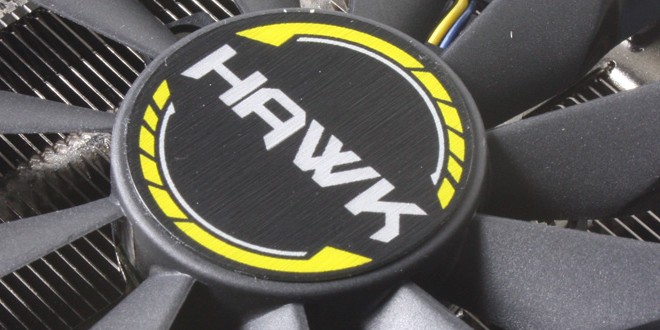
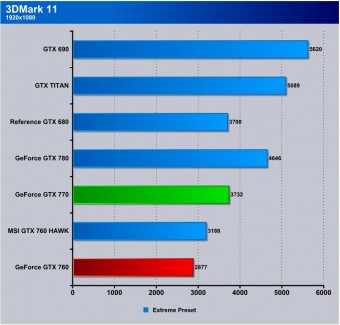
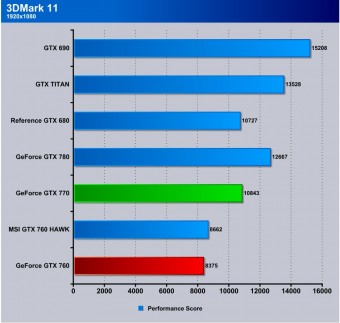
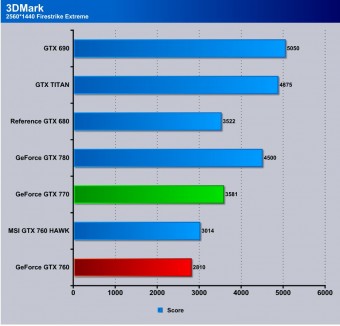
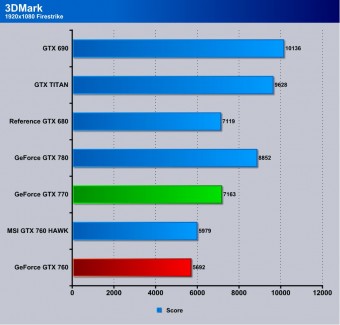
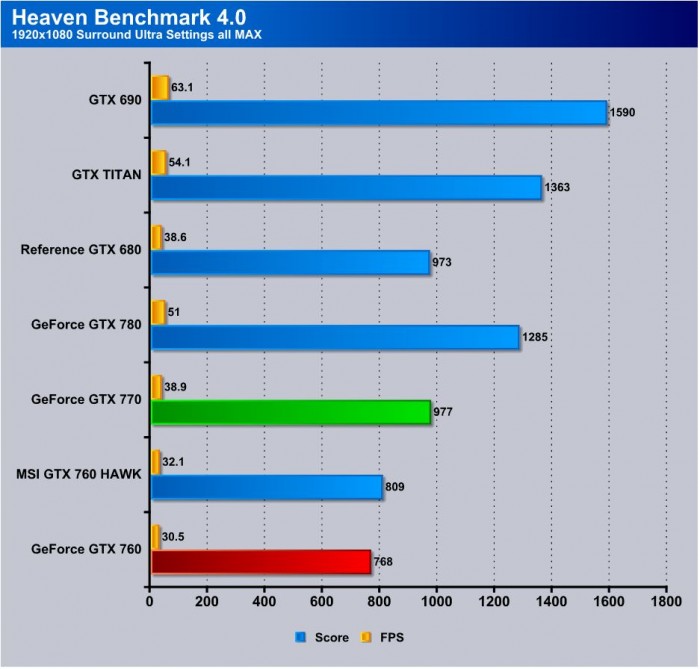
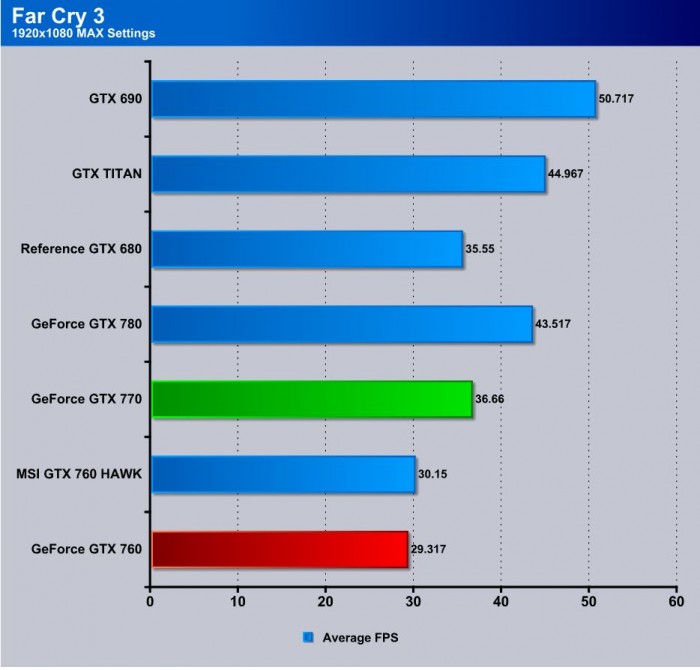
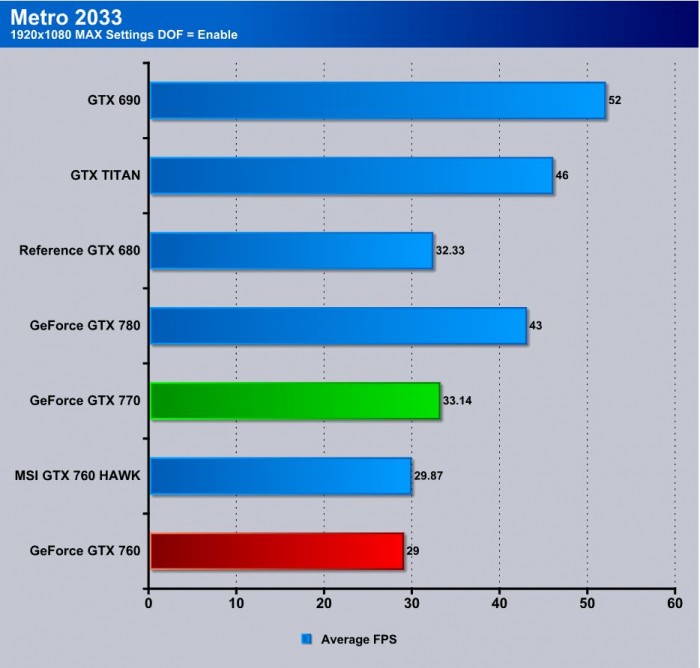
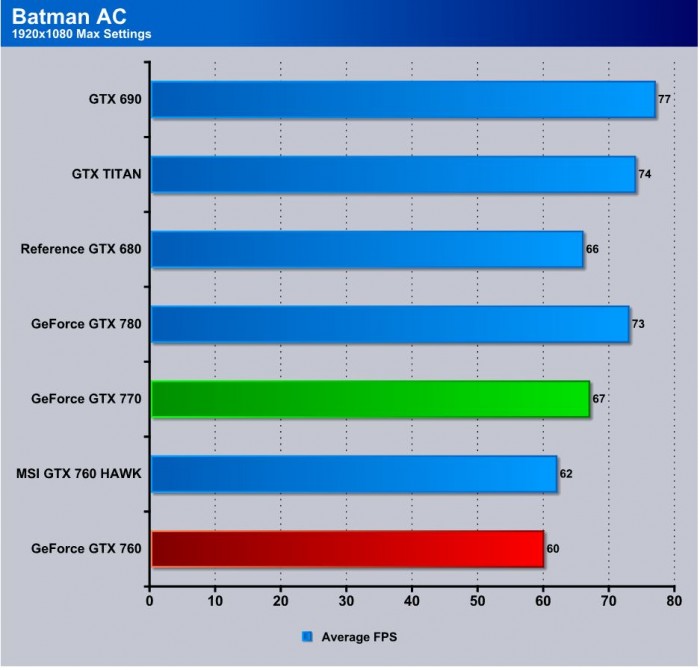
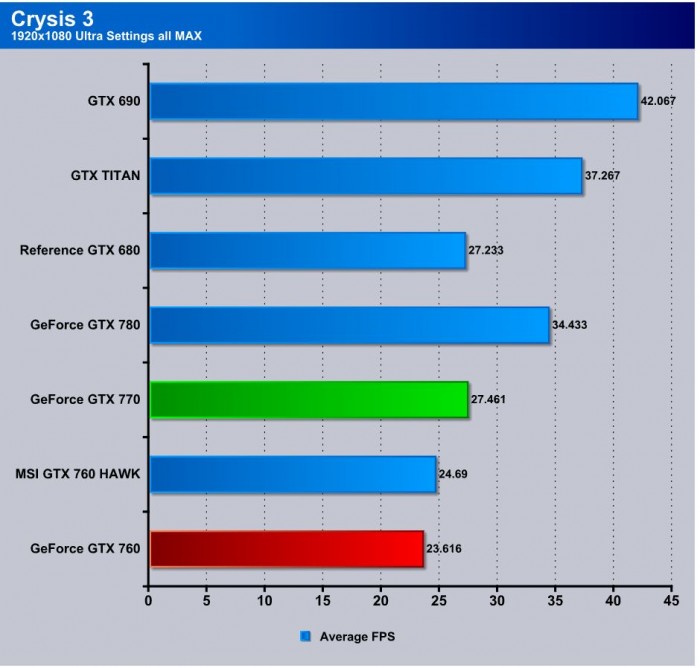
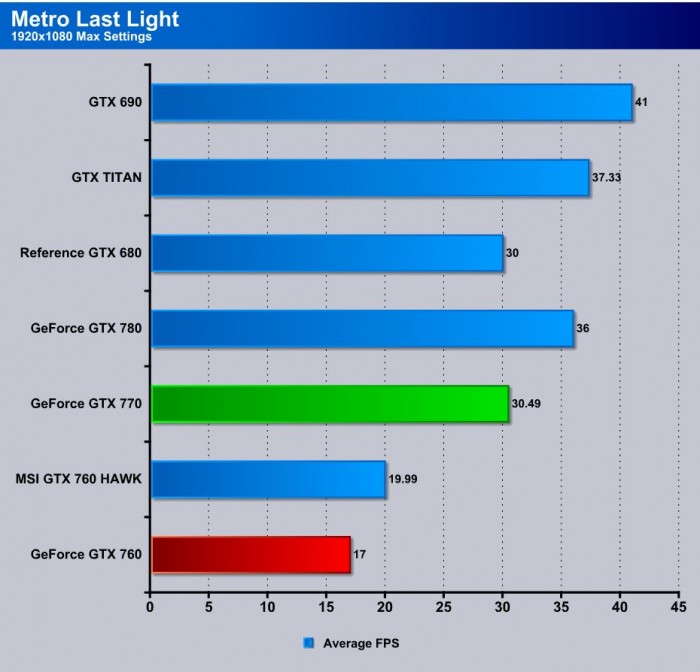
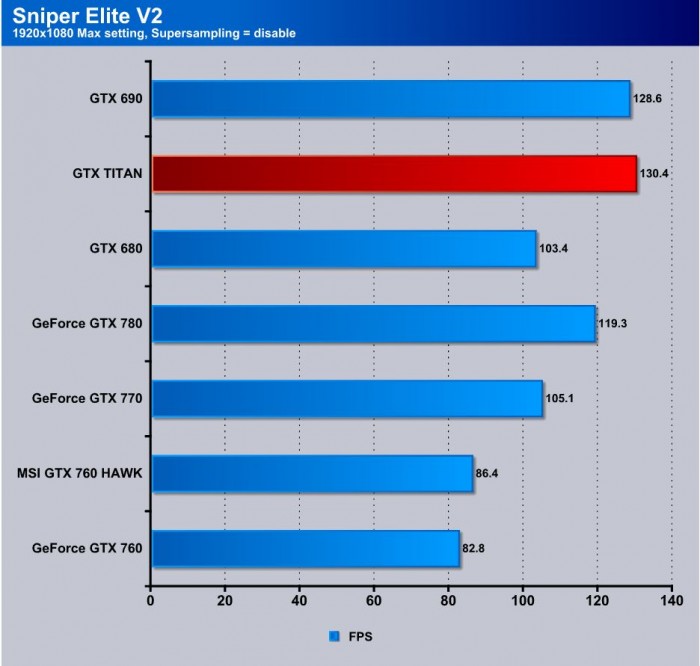
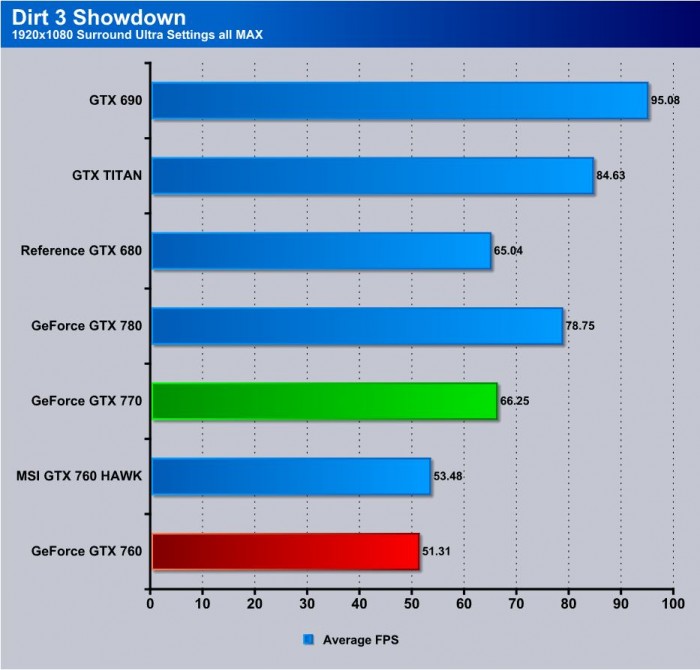
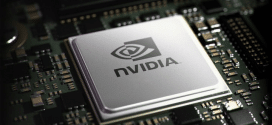
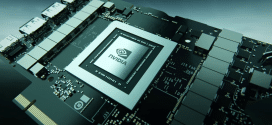






Due to an incoming monetary benefit coming my way in the relative near future, I’ve been looking forward to upgrading from my MSI GeForce 460 GTX 1GB card. The card’s not dead nor close to it. I just want more performance that’s not a SLI solution seeing as not all games support SLI. My 750W PSU should be able to handle the MSI GeForce 760 GTX Hawk well. Sure the $290 price tag is a tad steep, but for the reliability I’ve long seen in my current MSI card, I’m willing to pay the little extra for legitimate additional reliablity. I’m not really into OCing so that part of the author’s article doesn’t really interest me. It’s the rest of the article that interests me greatly. Thanks, Shannon Robb for a well written article on this card. Since my incoming money isn’t a vast amount, but will allow me to upgrade my main computer’s graphics card and additional RAM only, I’m glad there are people who’ll actually pay attention to those of us who are in the “middle of the road” gaming crowd.